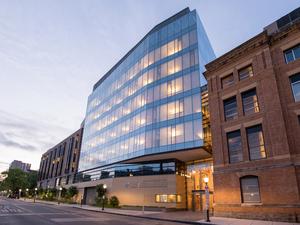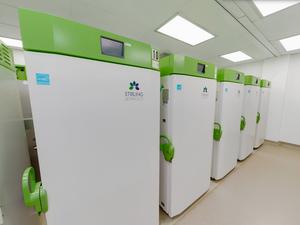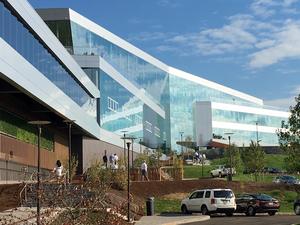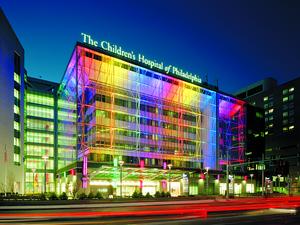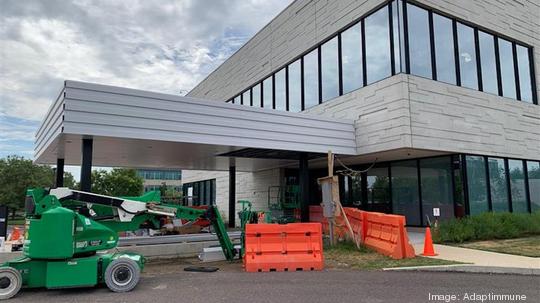
This week's updates from the region's life sciences industry include news on a cell therapy company's manufacturing capacity expansion at its Philadelphia Navy Yard site, a medical device company's multimillion-dollar stock sale, a co-chairman and co-CEO appointment, and more.
Here's the roundup:
Adaptimmune
The cell therapy company remains on track to submit its first biologics license application for an experimental cancer therapy by the end of this year and, in connection with that milestone, it is expanding its Philadelphia operations at the Navy Yard.
"This expansion will ensure we have the manufacturing capacity to meet the anticipated commercial demand for this product [afami-cel] as well as continued supply for our broad pipeline of additional clinical trials," said John Lunger, Adaptimmune’s chief patient supply officer.
Afami-cel is being developed to treat synovial sarcoma, a rare type of cancer that typically arises in muscle or ligaments near large joints, and myxoid/round cell liposarcoma, a rare cancer that grows in the cells that store fat in the body.
Adaptimmune's Navy Yard building is about 47,000 square feet and houses autologous drug product manufacturing as well as some corporate and clinical development functions. About 13,000 square feet of space at the complex is currently dedicated to manufacturing operations. The company will now build out that manufacturing space to 17,000 square feet.
Adaptimmune (NASDAQ: ADAP) is not disclosing the price tag for the expansion, which is expected to be completed in the fall.
Helius Medical Technologies
The Bucks County neurotechnology company raised $18 million through a public stock offering.
Helius (NASDAQ: HSDT) sold 24 million shares of its Class A common stock along with warrants to purchase up to 36 million shares of its Class A common stock at a purchase price of $75 cents per share. The warrants have an exercise price of 75 cents per share and expire on five years.
The company intends to use the net proceeds from the offering for funding operations, working capital and other general corporate purposes. In a filing with the Securities and Exchange Commission, Helius said it may use a portion of the net proceeds for the acquisitions of businesses, products, technologies or licenses that are complementary to its business, but the company has "no present commitments or agreements to do so."
Helius in April launched its flagship product, the portable neuromodulation stimulator, or PoNS, in the United States.
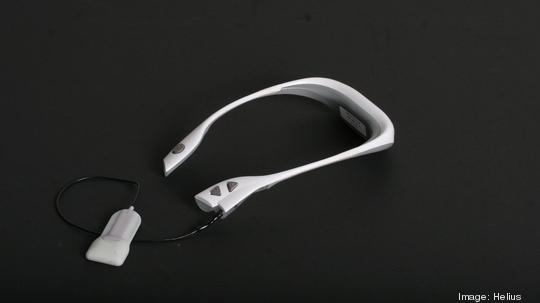
The device, approved by the FDA last year to help patients with multiple sclerosis with gait deficit improve their walking ability, is a non-implantable device that delivers mild electrical stimulation to the dorsal surface of the patient’s tongue. The PoNS, available in Canada since 2019, consists of a controller that goes around the neck and a mouthpiece that rests on the front of the tongue. Electrodes send mild electrical impulses to the tongue to stimulate two cranial nerves that have direct connections into the brain through the brainstem.
Roth Capital Partners was lead placement agent and Maxim Group LLC was co-placement agent for the stock offering.
AnPac Bio-Medical Science Co.
The biotechnology company's board of directors appointed Yuyang Cui as AnPac's co-chairman and co-CEO.
Founded in 2010, AnPac is focused on early cancer screening and detection. The company has operations in China and in Montgomery County at the Spring House Innovation Park.
Cui, who is sharing the chairman and CEO titles with Chris Chang Yu, will be primarily responsible for searching and presenting potential business opportunities to the company's board and handling capital markets strategy and related activities. Yu is responsible for general operations and other related activities not outlined for Cui.
Last month, the company's shareholders passed a resolution calling for the removal of Aidong Chen as AnPac's then co-chairman and co-CEO. No explanation for the decision was provided by the company.
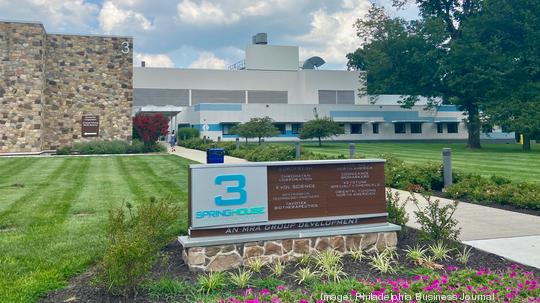
Aro Biotherapeutics
The Philadelphia biotechnology company pioneering the development of tissue-targeted genetic medicines said the FDA granted orphan drug designation for ABX1100, the company's experimental Pompe disease treatment.
The new drug candidate targets the GYs1 gene in the muscle of patients with the condition.
Pompe disease is a rare genetic disease that afflicts an estimated 5,000 to 10,000 people worldwide. The condition is characterized by debilitating muscle weakness that progresses over time and arises from a mutation in the enzyme responsible for breakdown of glycogen in the muscle. Because of the mutation, patients with Pompe disease have elevated levels of glycogen, which drives disease progression. Patients are currently treated with enzyme replacement therapy, but the inability to target and deliver the therapy to skeletal muscle has limited the efficacy and safety profile of such treatments.
Dr. Mitte Doyle, Aro's chief medical officer, said the company expects to advance ABX1100 to clinical trials in the coming year.
Companies whose products receive orphan drug designation receive incentives to develop treatments for conditions with small patient populations. Those incentives include tax credits and fee exemptions.
Quick Hits
Philadelphia-based Passage Bio (NASDAQ: PASG) dosed its first patient in a Phase 1/2 clinical trial evaluating PBFT02, a gene therapy being developed as a treatment for patients with frontotemporal dementia — a form of early onset dementia. … Nabriva Therapeutics (NASDAQ: NBRV) of Fort Washington said it has completed patient enrollment for its Phase 1 clinical trial to assess the safety and pharmacokinetics of oral and intravenous Xenleta in adult patients with cystic fibrosis.
